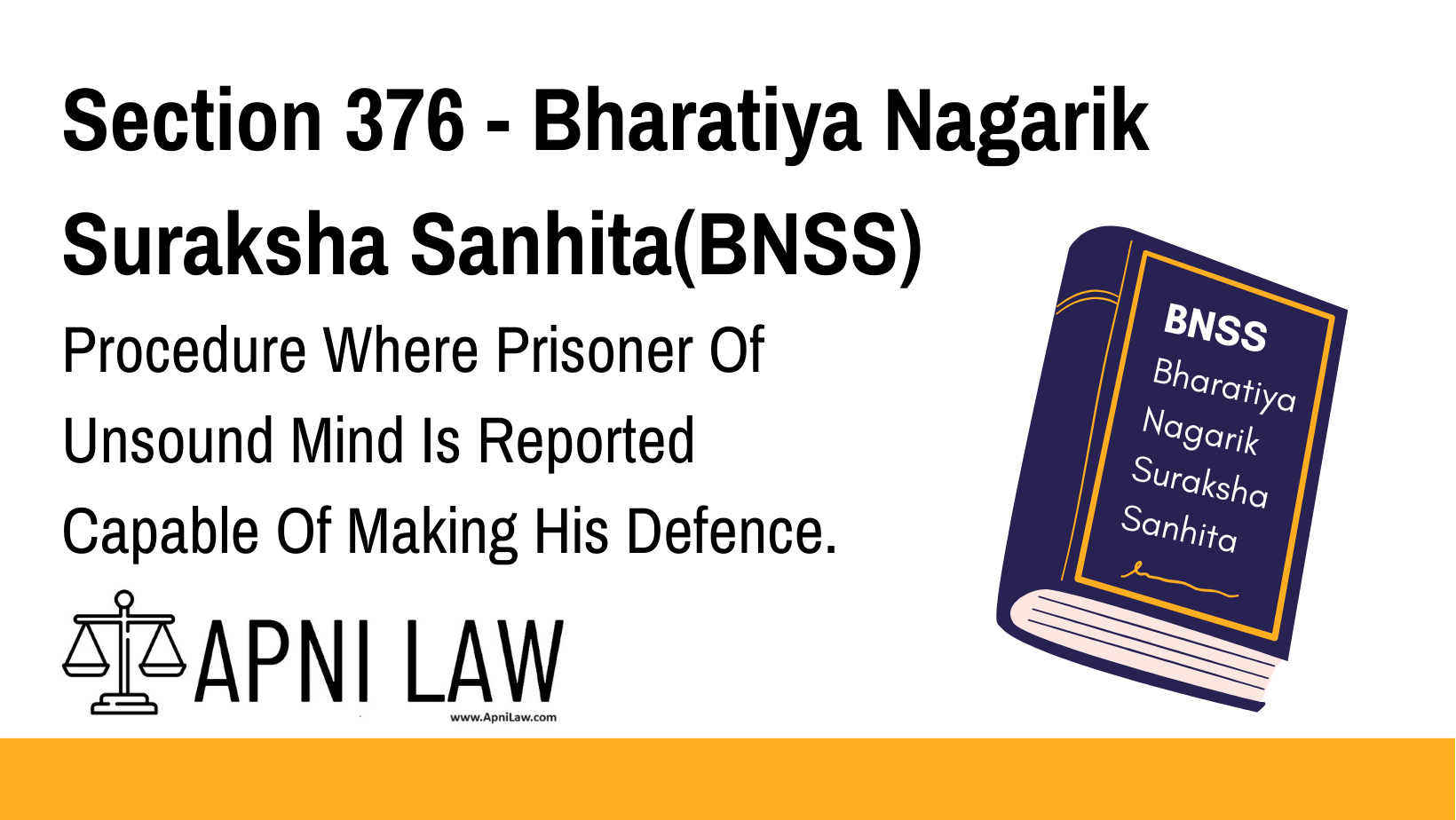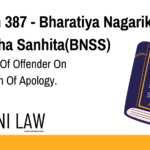Code: Section 376 BNSS
If a person is detained under the provisions of sub-section (2) of section 369,
and in the case of a person detained in a jail, the Inspector-General of Prisons, or, in the case
of a person detained in a public mental health establishment, the Mental Health Review
Board constituted under the Mental Healthcare Act, 2017, shall certify that, in his or their
opinion, such person is capable of making his defence, he shall be taken before the Magistrate
or Court, as the case may be, at such time as the Magistrate or Court appoints, and the
Magistrate or Court shall deal with such person under the provisions of section 371; and
the certificate of such Inspector-General or visitors as aforesaid shall be receivable as
evidence.
Explanation of Section 376 BNSS
Section 376 of the Bharatiya Nagarik Suraksha Sanhita (BNSS) lays down the procedure for handling individuals with mental illness who are detained in jail or a public mental health establishment but are later determined to be capable of making their defence.
The Inspector-General of Prisons or the Mental Health Review Board (for those in mental health institutions) is responsible for certifying whether the individual is capable of making a legal defence. Once such a certification is issued, the person is brought before the Magistrate or Court to proceed with the legal process in accordance with Section 371 BNSS.
The certification provided by the Inspector-General or Mental Health Review Board is considered as admissible evidence.
Illustration
Example 1: Certification of Defence Capability
A person with a mental illness is detained under Section 369. The Mental Health Review Board evaluates the person’s mental health and determines that the individual is now capable of making a legal defence. This certification allows the person to be brought before the Magistrate for trial, where the case will proceed in accordance with Section 371.
Common Questions and Answers on Section 376 BNSS
1. What is the role of the Inspector-General of Prisons or the Mental Health Review Board under Section 376?
- Answer: These authorities are responsible for certifying whether a person with mental illness is capable of making their legal defence. This certification is essential for the person to be brought before the Magistrate or Court.
2. What happens if a person with mental illness is deemed capable of making a defence?
- Answer: If the certification is issued confirming the individual is capable of defending themselves, the person will be brought before the Magistrate or Court, and the legal process will proceed under Section 371 BNSS.
3. How is the certification treated in court?
- Answer: The certification from the Inspector-General of Prisons or the Mental Health Review Board is treated as evidence in court and is admissible in the proceedings.
4. Can the process proceed if the person is not certified as capable of making their defence?
- Answer: No, if the person is not deemed capable of making a legal defence due to their mental illness, they cannot be brought to trial until their mental state is appropriately addressed.
Conclusion
Section 376 BNSS ensures that individuals with mental illness who are detained in jail or a mental health facility can have their mental state assessed to determine whether they are capable of participating in their defence. This safeguards their rights while maintaining the integrity of the legal process, ensuring that those who are mentally unfit are properly evaluated before proceeding with trial.








